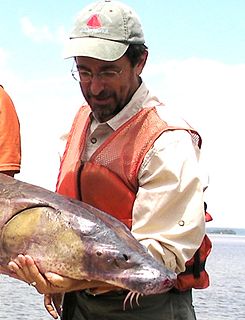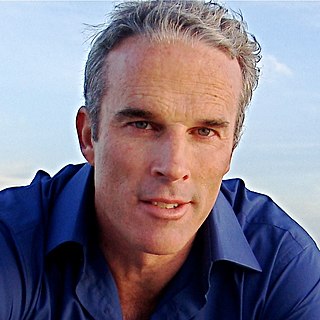A Quote by Sylvia Earle
For humans, the Arctic is a harshly inhospitable place, but the conditions there are precisely what polar bears require to survive - and thrive. 'Harsh' to us is 'home' for them. Take away the ice and snow, increase the temperature by even a little, and the realm that makes their lives possible literally melts away.
Related Quotes
The metaphor I routinely use is polar bears in the Sahara desert. You take creatures adapted to the cold and put them in the heat, the very traits that allow them to survive in one environment will conspire against them in the other. We are polar bears in the Sahara with one important distinction: we are smarter than the average bear. Once we identify the nature of the problem, we can think our way out of it. But it begins by acknowledging you didn't fail because you couldn't succeed. Because you didn't even know what the scope of the problem was. It's not your fault.
We're constantly re-evaluating the potential for life. We're finding it where we didn't think it could exist, such as volcanic vents and other extreme conditions like under arctic ice. We're finding life in these incredibly harsh and dynamic conditions, so we're having to re-evaluate our own ideas of what's possible on this planet alone.
The Arctic is a place that historically, during all preceding human history, has largely been an icy realm with an impact on ocean currents. That, in turn, influences the temperature of the planet. The Arctic is now vulnerable because of the excess carbon dioxide in the atmosphere, with a rate of melting that is stunning.
It's Earth Day today. Let me tell you something about polar bears. They're endangered but you have to be careful because a polar bear is one of the few animals that will stalk a human. If you go to where polar bears live, it might stalk you and when you're on the plane going home, it might be behind you reading.
There's another totally fraudulent recipient of the Nobel Peace Prize. Al Gore hadn't done anything but make a movie that itself was filled with misrepresentations about the amount of ice the poor polar bears have to live on, doctored photos. He said in his acceptance speech in 2007, getting a Nobel Peace Prize, that the North Pole would be ice free by 2013. Today the truth is, there is a record amount of arctic ice for this time of year. He couldn't have been more wrong.
Take away material prosperity; take away emotional highs; take away miracles and healing; take away fellowship with other believers; take away church; take away all opportunity for service; take away assurance of salvation; take away the peace and joy of the Holy Spirit... Yes! Take it all, all, far, far away. And what is left? Tragically, for many believers there would be nothing left. For does our faith really go that deep? Or do we, in the final analysis, have a cross-less Christianity?


































